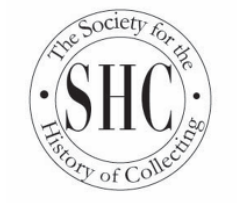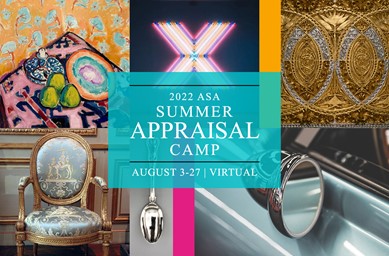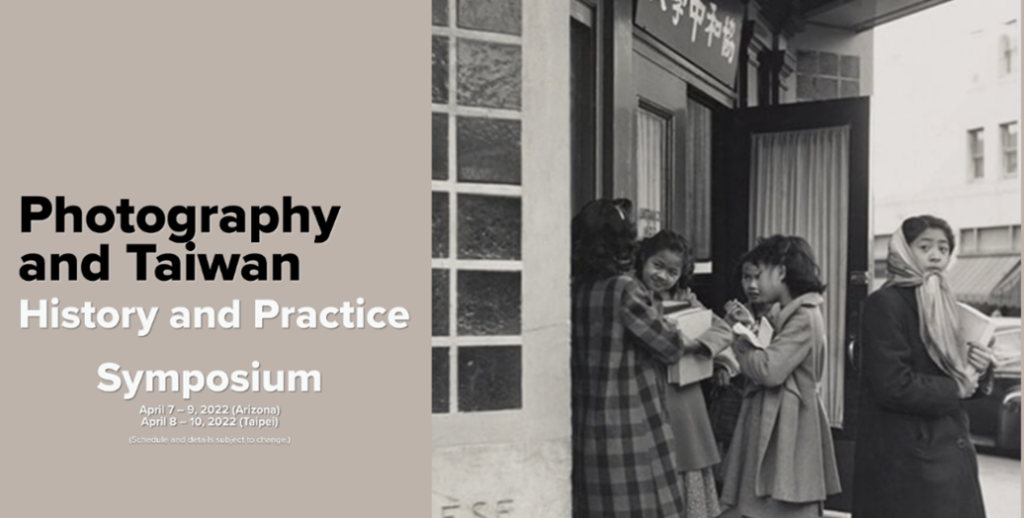CAA News Today
History of CAA’s Committee on Women in the Arts (CWA)
posted by CAA — Jul 29, 2022
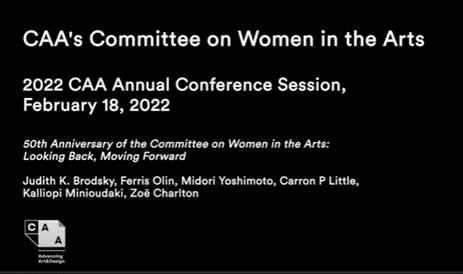
At CAA’s 2022 Annual Conference, current and former members of the Committee on Women in the Arts (CWA) presented a session on the history of feminism at CAA and within their committee entitled “50 Years of Feminist Art at CAA: Looking Back, Looking Forward.” Watch the video below to hear a series of talks on this history.
50 Years of Feminist Art at CAA: Speakers
Chair: Joanna P. Gardner-Huggett, DePaul University
Judith K. Brodsky, Pennsylvania Academy of Fine Arts
Ferris Olin, Rutgers University
Midori Yoshimoto, New Jersey City University
Carron P. Little, School of the Art Institute of Chicago
Kalliopi Minioudaki, Independent Scholar and Curator
Zoë Charlton, American University
Abstract: Fifty years ago, the Committee on Women in the Arts was founded to promote the recognition of women’s valuable contribution to the visual arts and to critical art-historical study; advocate for feminist scholarship and activism in art; develop partnerships with organizations with compatible missions; monitor the status of women in the visual-arts professions; provide historical and current resources on feminist issues; and support emerging artists and scholars in their careers. In 2020, the CWA implemented the 50/50 initiative, which aims for 50% representation of women scholars and artists at the CAA Annual Conference and intersectional feminist content inclusive of race, class, gender, body size, disability, or age. At this significant juncture, this session proposes to reflect on the committee’s history by inviting previous members and chairs to discuss their work with the CWA, as well as collaborations with other affiliate committees and groups, such as the Women’s Caucus for Art, The Feminist Art Project, the Queer Caucus, and many more. In addition to assessing CWA’s past contributions, the panel will engage in a conversation of what work remains to be done.
In 1972, CAA founded its first committees devoted to women in the arts. As a part of this yearlong 50th anniversary celebration, we are sharing historic materials from CAA members and archives that intersect with feminism at the organization, including CAA’s Committee on Women in the Arts (CWA) and our Affiliated Societies, Women’s Caucus for Art (WCA) and The Feminist Art Project (TFAP).
This celebration culminates in a program and reception at Boston University’s Joan and Edgar Booth Theatre on Friday, September 23, 2022. This program will reflect upon the incredible history of feminist pioneers at the organization while looking toward a more inclusive, equitable future through the continued work of the CWA. The members of CWA are carrying the torch of feminism during this crucial time of precarity for women’s rights.
Over the next couple months, visit this site (CAA News) and our social media pages to explore more about this history and items from our archives.
CAA’s 50th Anniversary Celebration of Feminism + Art
posted by CAA — Jul 29, 2022
In 1972, CAA founded its first committees devoted to women in the arts. As a part of this yearlong 50th anniversary celebration, we are sharing historic materials from CAA members and archives that intersect with feminism at the organization, including CAA’s Committee on Women in the Arts (CWA) and our Affiliated Societies, Women’s Caucus for Art (WCA) and The Feminist Art Project (TFAP).
This celebration culminates in a program and reception at Boston University’s Joan and Edgar Booth Theatre on Friday, September 23, 2022. This program will reflect upon the incredible history of feminist pioneers at the organization while looking toward a more inclusive, equitable future through the continued work of the CWA. The members of CWA are carrying the torch of feminism during this crucial time of precarity for women’s rights.
Over the next couple months, visit this site (CAA News) and our social media pages to explore more about this history and items from our archives.
Call for Proposals: Materiality and Mediation: Global Conversations
posted by CAA — May 02, 2022
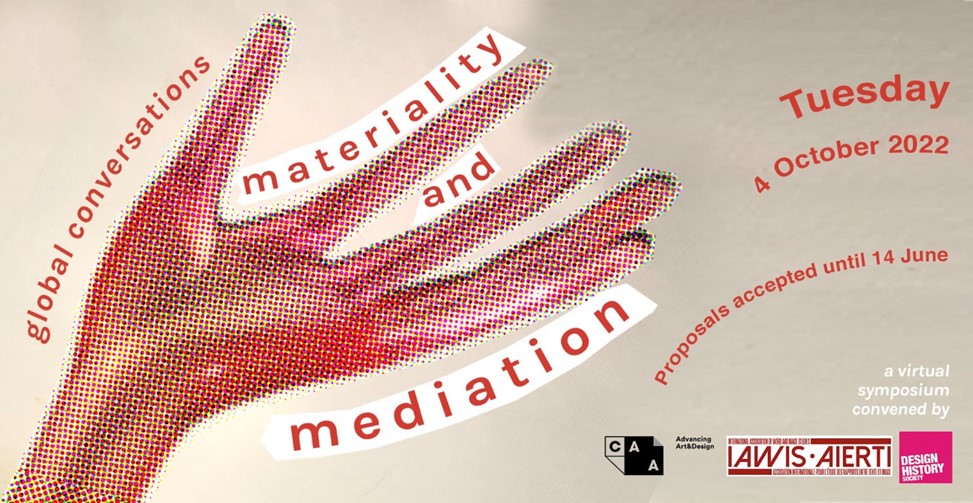
Materiality and Mediation: Global Conversations
Tuesday, 4th October 2022.
A virtual symposium convened by the CAA, the Design History Society, and the International Association of Word and Image Studies
To what extent are materiality and mediation useful foci in the study of design, word and image? What happens when we bring them together? How do materiality and mediation work in tandem as productive subjects of enquiry? What are the local, regional and international variations in the ways these foci are understood and engaged by design historians and those working in word and image studies?
This global collaborative project brings together three intersecting constituencies—art and design, design history, word and image studies—to examine the ways in which materiality and mediation intersect.
- mediating the ethics and sustainability of extraction and deployment of materials
- sensoriality of materials and mediation
- mediation as material activism
- mediating intersections of materiality and form (natural/synthetic/digital matter; art/craft/design/film/photography; prose/poetry/drama)
- localizing/globalizing materials through mediation
- ‘raw and cooked’ materials
- mediating materialities of scale
- mediating immateriality
- mediating materials as signifiers of identity politics
- (Im)material media of mediation
- agency of materials
- dialogues and disputes between makers and mediators.
- a proposal title;
- an abstract of 250 words;
- a statement of relevance to the symposium theme, Materiality and Mediation: Global Conversations;
- and a one-page CV listing major publications.
Please send your proposal via email to the DHS Administrator, Jenna Allsopp, (designhistorysociety@gmail.com) by 12 midnight GMT on Tuesday June 14, 2022. Notifications of acceptance will be emailed on July 8, 2022.
The Design History Society and the International Association of Word and Image Studies are two of CAA’s affiliated societies. If you have an interest in joining CAA as an affiliated society, please visit this page.

Looking Back at a Year of Robust Humanities Advocacy
posted by CAA — Apr 25, 2022
By Alexandra Klein, National Humanities Alliance (NHA) Communications and Government Relations Manager
In early March, five months after Fiscal Year 2022 began, Congress finally passed a funding package for the year. The package included significant increases for federal humanities programs—most significantly, the largest increase we’ve seen in a decade for the National Endowment for the Humanities.
This success followed a full year of robust humanities advocacy, much of which was supported by scholarly societies such as CAA. For example, thanks to their ability to mobilize their members, we were able to recruit advocates from all 50 states to participate in our 2021 Humanities Advocacy Day, which kicked off our advocacy for these FY 22 wins.
In addition to many other engagements with members of Congress and their staff throughout the year, we followed Humanities Advocacy Day with two congressional briefings to highlight the impact of NEH funding.
The first briefing, held in September 2021, discussed NEH funding for diverse histories and civics in K–12 education. Since 2018, NHA has worked with over 20 NEH-funded professional development programs for K-12 educators to survey their impacts, and this briefing was an opportunity for congressional staff to hear about the data we’ve collected. At the briefing, we shared that 100 percent of respondents to a post-program survey reported experiencing professional growth as a result of the program they attended and 98 percent of respondents said they would recommend participating in an NEH workshop to a colleague. Staffers also heard directly from project directors about how these programs—which covered a range of topics including Native American histories, the Mississippi Delta, the Transcontinental Railroad, and Japanese American internment—offer crucial professional development to our nation’s educators, illuminate diverse histories, and support civic education in our nation’s classrooms.
The second briefing, held in November 2021, showcased how NEH funding for public humanities discussions enriches our communities by highlighting the example of the NEH-funded “Freedom Stories: Unearthing the Black Heritage of Appalachia the International Storytelling Center (ISC) in Jonesborough, Tennessee. Those involved in the project spoke about how it built space for dialogue and learning, and about how the discussions offered participants the chance to explore our rich histories and come together across differences. Thanks to a partnership with NHA to document the impact of the program, we were able to highlight that 82 percent of participants in the “Freedom Stories” program agreed that they “feel more confident taking part in thoughtful discussions about race” as a result of the program, and 93 percent felt motivated to “listen to the stories of people whose backgrounds are different from [their] own.”
After a long year of advocacy and several continuing resolutions that kept government funding at FY 21 levels past the beginning of FY 22, we were particularly pleased to see Congress approve a $12.5 million funding increase for the NEH in March, bringing its FY 22 budget to $180 million.
Our other priorities also saw increases. These included an increase of $2.5 million for Title VI, which brought its funding to $71.9 million, and an increase of $1 million for Fulbright-Hays, which brought its funding to $9.8 million. The Institute of Museum and Library Services received $268 million, an $11 million increase for the agency overall. While there was an increase for both the Office of Museum Services and the administration budget, the funding to carry out the Library Services and Technology Act remained level. The National Archives and Records Administration received $388 million, an $11 million increase. And NHPRC received $7 million, a half a million dollar increase.
There was one disappointment that came with these numbers. Nearly across the board, these final numbers were significantly lower than the numbers that the House and Senate originally proposed for our priorities. This was, however, the case for nearly all domestic spending.
As we turn our attention to FY 2023, we are hopeful we can build on the level of support we saw in the initial FY 2022 bills to secure additional increases in the coming year. The FY 23 process is off to a good start with the administration proposing another round of robust increases for several humanities priorities, which we will be working to make a reality as Congress drafts its yearly appropriations bills.
Affiliated Society News: April
posted by CAA — Apr 11, 2022
Affiliated Society News shares the new and exciting things CAA’s affiliated organizations are working on including activities, awards, publications, conferences, and exhibitions.
Interested in becoming an Affiliated Society? Learn more here.
American Society of Appraisers
Publications
Valuing a Business, 6th Edition
The seminal book on business valuation is back and better than ever. Shannon Pratt’s Valuing a Business has been the go-to valuation guide for 40 years and has been updated with need-to-know information about taxes, financial reporting, compliance, and more. Valuing a Business is still the best resource on the market for both new and experienced business appraisers. This book fully covers the concepts of business valuation and provides detailed answers to virtually every question on the topic, from executive compensation and lost profits analysis to ESOP issues and valuation discounts.
Events
11th Annual ASA Equipment Valuation Conference
Tuesday, May 24, from 11 a.m. – 4:30 p.m.
Now in its 11th year, this annual event has grown to become the definitive source for appraisers, equipment management and finance professionals on the latest insights into equipment valuation. Instantly leverage knowledge gained on market trends and spotlighted asset sectors, as well as new contacts made, by incorporating into your practice areas or introducing to your team.
2022 ASA Summer Appraisal Camp
August 2022
Develop the skills you’ll need to build a career in appraising personal property such as fine and decorative art, antiques, vintage cars, furniture, coins, stamps, and more.
The program includes four virtual courses held over four weeks, including:
- PP201 – Introduction to Personal Property Valuation – August 3-6, 2022
- PP202 – Development of a Personal Property Appraisal: Research and Analysis – August 10-13, 2022
- PP203 – Communication of a Personal Property Appraisal: Report Writing – August 17-20, 2022
- PP204 – Personal Property Valuation: The Legal and Commercial Environments – August 24-27, 2022
Taiwanese Art History Association
Announcements / Events
PHOTOGRAPHY AND TAIWAN: History and Practice
Thursday, April 7
The Taiwan Academy of the Taipei Economic and Cultural Office in Los Angeles (TECO-LA), the University of Arizona’s School of the Arts (SAUA), and the Center for Creative Photography (CCP) are collaborating for the first time on the “Spotlight Taiwan project” to hold the “Photography and Taiwan: History and Practice” online symposium from April 7 to April 9, 2022 (PST). Nineteen scholars and experts from Korea, the United States, Australia and Taiwan are invited to attend the symposium. They will help the audience understand more about the history, culture and democratization of Taiwan through a historical lens and scholarly debate as recorded in the photography.
Announcing New CAA Board Members for 2022!
posted by CAA — Mar 08, 2022
The results of the 2022 CAA Board of Directors Election were presented at the CAA Annual Business Meeting, Part II on Friday, February 18 at 2:00 p.m. (CST) at CAA’s 110th Annual Conference.
We are grateful to all the candidates who put forward their names for consideration this year.
ABOUT THE BOARD OF DIRECTORS
The Board of Directors is charged with CAA’s long-term financial stability and strategic direction; it is also the Association’s governing body. The board sets policy regarding all aspects of CAA’s activities, including publishing, the Annual Conference, awards and fellowships, advocacy, and committee procedures.
Thank you to all those who voted!
We would like to congratulate Gregory Gilbert, Nazar Kozak, Karen J. Leader, Adity Saxena, and Victoria McCraven on their election to CAA’s Board of Directors.
Gregory Gilbert
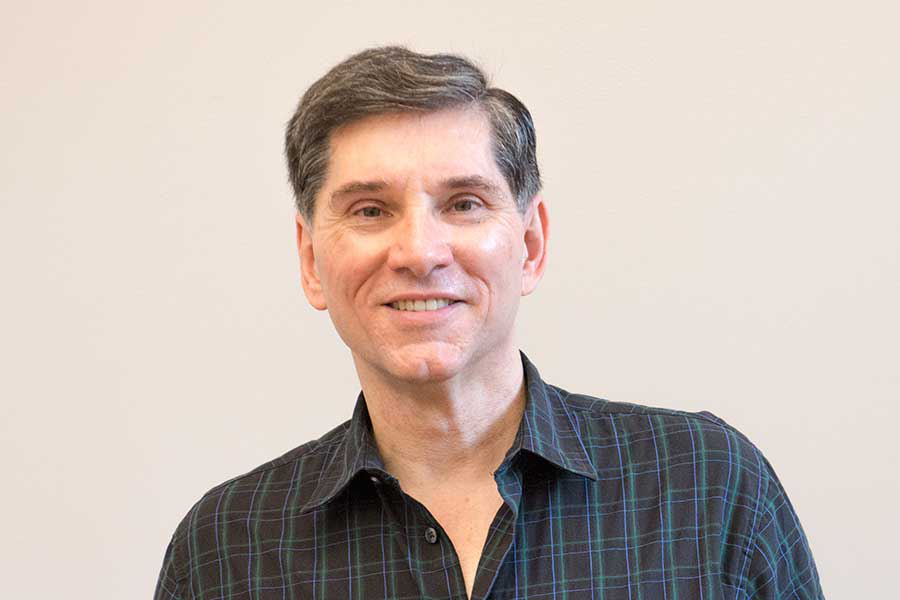 Gregory Gilbert received his BFA degree in Art History from the University of Kansas and his MA and PhD degrees in Art History from Rutgers University. He has taught at Rutgers University, Purdue University and Western Illinois University. He is currently Professor of Art History and Director of the Art History and Art Museum Studies programs at Knox College in Galesburg, Illinois. He also earned MA certification in Museum Studies from Rutgers University and has worked in several art museums, most recently as senior curator at the Figge Art Museum in Davenport, Iowa. His primary area of research is 20th century American art, specifically Abstract Expressionism. He is currently researching the relationship of Robert Motherwell’s art to Pragmatist philosophy and American poetics and in 2015 received a Dedalus Foundation Visiting Scholar at the Archives of American Art Fellowship for this project. He is also writing a book on Abstract Expressionism and the mass visual culture of World War II and has published articles in the Oxford Art Journal and Arts on this topic. In addition, he has written critical exhibition and book reviews for The Art Newspaper.
Gregory Gilbert received his BFA degree in Art History from the University of Kansas and his MA and PhD degrees in Art History from Rutgers University. He has taught at Rutgers University, Purdue University and Western Illinois University. He is currently Professor of Art History and Director of the Art History and Art Museum Studies programs at Knox College in Galesburg, Illinois. He also earned MA certification in Museum Studies from Rutgers University and has worked in several art museums, most recently as senior curator at the Figge Art Museum in Davenport, Iowa. His primary area of research is 20th century American art, specifically Abstract Expressionism. He is currently researching the relationship of Robert Motherwell’s art to Pragmatist philosophy and American poetics and in 2015 received a Dedalus Foundation Visiting Scholar at the Archives of American Art Fellowship for this project. He is also writing a book on Abstract Expressionism and the mass visual culture of World War II and has published articles in the Oxford Art Journal and Arts on this topic. In addition, he has written critical exhibition and book reviews for The Art Newspaper.
Nazar Kozak
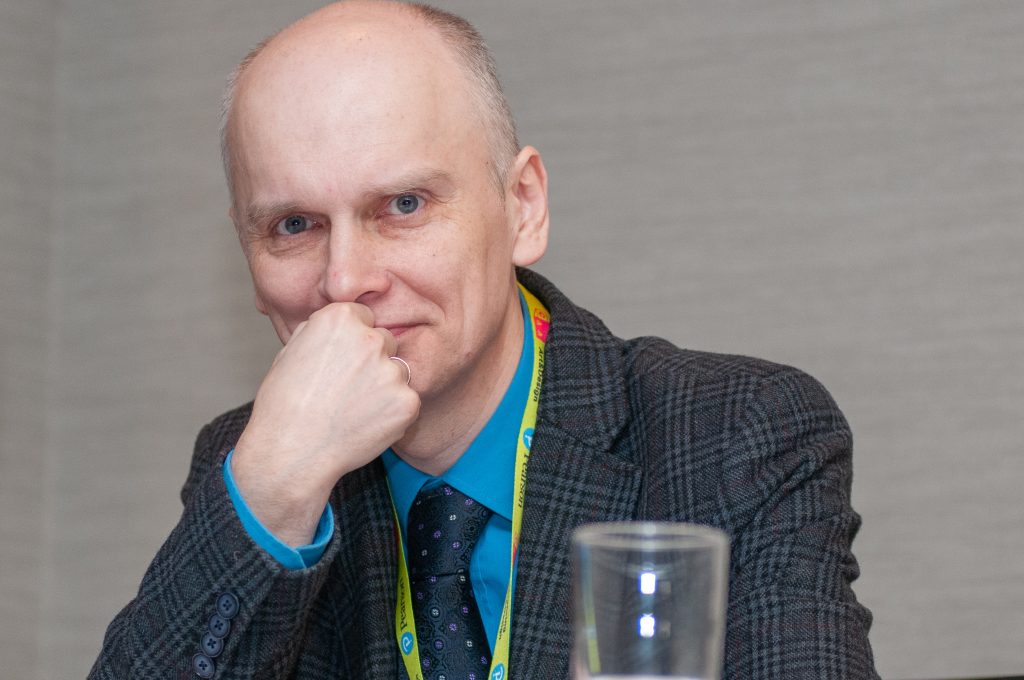 Nazar Kozak is Senior Researcher at the Department of Art Studies at the Ethnology Institute of the National Academy of Sciences, Ukraine and Associate Professor of Art History at Ivan Franko University of Lviv. Kozak received a PhD from Lviv Academy of Arts in 2000. His research was supported by scholarships and grants from the Fulbright Scholar Program, Getty Scholar Program, the American Council of Learned Societies, and other organizations. Kozak is working in two subfields of art history simultaneously: medieval and contemporary. His research on the medieval period concerns political iconography and art exchanges in Byzantine and post-Byzantine cultural spheres. He has authored the book (Lviv: Liha-Pres, 2007). In contemporary art studies, Kozak is exploring art’s agency in crisis situations. His essay on the art interventions during the Maidan Revolution in Ukraine (2013–14) received an honorable mention as a finalist for 2018 Art Journal Award. Currently, Kozak is writing a book about global artistic responses to the 1986 Chernobyl nuclear disaster.
Nazar Kozak is Senior Researcher at the Department of Art Studies at the Ethnology Institute of the National Academy of Sciences, Ukraine and Associate Professor of Art History at Ivan Franko University of Lviv. Kozak received a PhD from Lviv Academy of Arts in 2000. His research was supported by scholarships and grants from the Fulbright Scholar Program, Getty Scholar Program, the American Council of Learned Societies, and other organizations. Kozak is working in two subfields of art history simultaneously: medieval and contemporary. His research on the medieval period concerns political iconography and art exchanges in Byzantine and post-Byzantine cultural spheres. He has authored the book (Lviv: Liha-Pres, 2007). In contemporary art studies, Kozak is exploring art’s agency in crisis situations. His essay on the art interventions during the Maidan Revolution in Ukraine (2013–14) received an honorable mention as a finalist for 2018 Art Journal Award. Currently, Kozak is writing a book about global artistic responses to the 1986 Chernobyl nuclear disaster.
Karen J. Leader
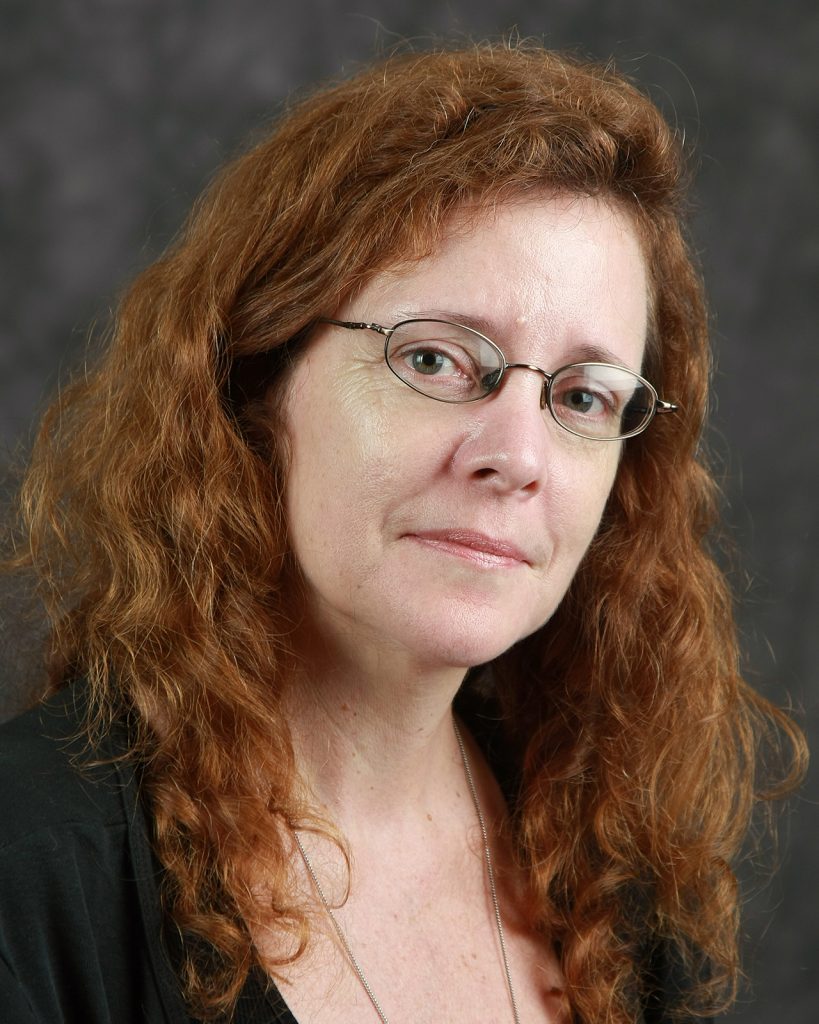 Karen J. Leader is Associate Professor of Art History and Faculty Associate in the Center for Women, Gender and Sexuality Studies at Florida Atlantic University. She received her BA from the University of California, Berkeley and her MA and Ph.D. at the Institute of Fine Arts, New York University. Her areas of interest include art and popular culture in the 19th-21st centuries, feminist theory and practice, and the history and future of the discipline of art history, the humanities, and higher education. She has published on the artist Gustave Courbet, representations of women in popular culture, and 21st-century tattoo culture. She directs the Barb Schmidt Fellowship: Cultivating Community Involvement, Advocacy and Social Change, and is currently the chair of CAA’s Services to Historians of the Visual Arts Committee.
Karen J. Leader is Associate Professor of Art History and Faculty Associate in the Center for Women, Gender and Sexuality Studies at Florida Atlantic University. She received her BA from the University of California, Berkeley and her MA and Ph.D. at the Institute of Fine Arts, New York University. Her areas of interest include art and popular culture in the 19th-21st centuries, feminist theory and practice, and the history and future of the discipline of art history, the humanities, and higher education. She has published on the artist Gustave Courbet, representations of women in popular culture, and 21st-century tattoo culture. She directs the Barb Schmidt Fellowship: Cultivating Community Involvement, Advocacy and Social Change, and is currently the chair of CAA’s Services to Historians of the Visual Arts Committee.
Victoria McCraven
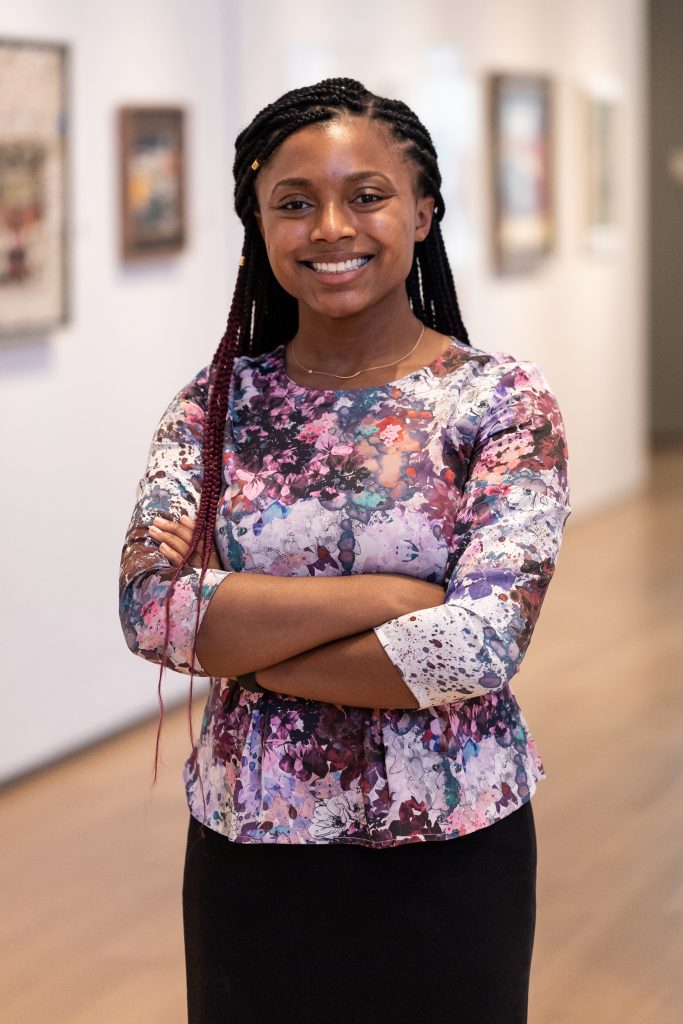 Victoria McCraven is the Programs Manager at NXTHVN, where she recently co-curated the Fall Exhibition Christian Curiel: Between Reveries. Based in New Haven, Connecticut, NXTHVN is an arts non-profit which invites emerging artists from all over the world to participate in its curatorial and studio fellowships. She is passionate about expanding historical narratives through the visual arts and creating community-based dialogue. Victoria earned her bachelor’s degree from Dartmouth College, majoring in Geography with a minor in Art History. While at Dartmouth, she worked at the Hood Museum of Art where she curated the exhibition Black Bodies on the Cross which included works by Romare Bearden, Kara Walker, and Ashley Bryan. In 2019, Victoria was selected as a U.S.-U.K. Fulbright Postgraduate Grantee to complete her master’s degree in History of Art at the School of Oriental and African Studies, University of London. Previously, Victoria was the 2020-2021 Romare Bearden Graduate Museum Fellow at the Saint Louis Art Museum, where she worked on education and audience development projects across the museum. While completing her fellowship at the Saint Louis Art Museum, she co-curated the current New Media Series Nuotama Frances Bodomo: Afronauts which is currently on view through May 1, 2022.
Victoria McCraven is the Programs Manager at NXTHVN, where she recently co-curated the Fall Exhibition Christian Curiel: Between Reveries. Based in New Haven, Connecticut, NXTHVN is an arts non-profit which invites emerging artists from all over the world to participate in its curatorial and studio fellowships. She is passionate about expanding historical narratives through the visual arts and creating community-based dialogue. Victoria earned her bachelor’s degree from Dartmouth College, majoring in Geography with a minor in Art History. While at Dartmouth, she worked at the Hood Museum of Art where she curated the exhibition Black Bodies on the Cross which included works by Romare Bearden, Kara Walker, and Ashley Bryan. In 2019, Victoria was selected as a U.S.-U.K. Fulbright Postgraduate Grantee to complete her master’s degree in History of Art at the School of Oriental and African Studies, University of London. Previously, Victoria was the 2020-2021 Romare Bearden Graduate Museum Fellow at the Saint Louis Art Museum, where she worked on education and audience development projects across the museum. While completing her fellowship at the Saint Louis Art Museum, she co-curated the current New Media Series Nuotama Frances Bodomo: Afronauts which is currently on view through May 1, 2022.
Adity Saxena
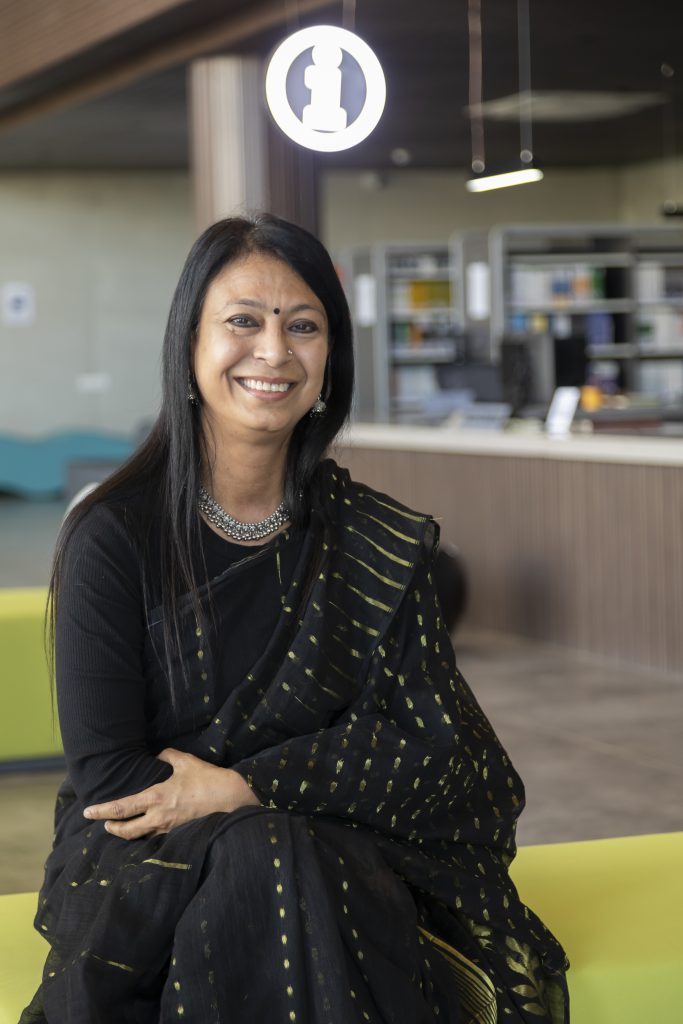
I call myself a messenger of happiness and believe in empathy. Mind-map is my tool for plotting ideas and communicating through stories. In the past 18 years of my professional journey, I have progressed from a design educator of a vocational training institution to a Dean of the Woxsen School of Arts and Design, India. In addition, I have expanded my path from teaching to academic coordination to academic leadership.
Being a first-generation graduate, I have many pauses, slow and fast pace in my journey path, which gives me an understanding of people, culture, and power of empathy. I am a teenage girl’s mother, a certified design thinker, and a mentor.
My experience includes allied fields like working as a Restorative Justice co-facilitator in a school project in the United States and many global research projects. I am India representative of Restorative Justice Education, USA, a nonprofit, 501(c)(3) corporation) is to promotes the practice of Restorative in school education to create a culture of care.
The social role of art, wellbeing and education are the areas that interest me more. My research has been published globally and many of my research are the outcome of global collaborations. I have been invited to share my thoughts about the challenges in online education, corporate storytelling, and design thinking on many international platforms.
I have been featured in The Academic Woman Magazine, the UK, in Jan-March, 2022 issue. In addition, recently, I have been invited to work as an external member in Design Thinking for Social Change, a project funded by the European Union.
I am privileged to be connected with a global network and believe in the power of collaborations. My dream is to create an enjoyable learning space for students and teachers.
CAA’s Anti-Colonialism Solidarity Statement
posted by CAA — Mar 02, 2022
On February 24, 2022, we witnessed the onset of military action and invasion of Ukraine. The College Art Association (CAA) strongly condemns colonialist aggression and oppression. We stand with our global colleagues, constituents, and friends who are affected by violence and threats to their safety as they struggle for peace and human rights. We recognize and hold firmly the inherent foundations for freedom, justice, and peace in the world. With peace as a central goal, we strongly condemn the deliberate destruction of heritage sites, destruction of art, and attempted hegemonic erasure of culture and history through the actions of oppressors. We encourage our international community of artists, historians, and designers to respond with care, with the aim to de-escalate the violence; and to use actions and words that will reaffirm peace, universal respect, and observance of the spirit of shared humanity. We invite members of our international community and learned societies to support colleagues, to protect scholarship and, with us, to condemn the atrocities to cultural heritage. Destruction of art and history in any one region is an action of erasure of all shared human histories.
CAA holds deep concern for the safety of working people, academic personnel, students, and the culture of the Ukraine, as well as the Global South, Middle East, and Far East and all our international constituencies affected by violence and uncertainty. We additionally support all BIPOC students and peoples and their equal treatment. CAA, its board, and its staff will continue to be in contact with affected members and offer support and advocacy. We stand in solidarity with our international arts community to create, analyze, teach, and promote art as an essential part of our institutions and our lives. We hold your safety, peace, and wellbeing at the forefront of our hearts.
CAA is a signatory of the American Historical Association’s letter condemning the Russian invasion of Ukraine. They write, “We vigorously support the Ukrainian nation and its people in their resistance to Russian military aggression and the twisted mythology that President Putin has invented to justify his violation of international norms.” To read this statement in full, please visit their website.
To read more about CAA’s advocacy, visit this page.
Resources for Displaced Scholars and Students
United States
New University in Exile Consortium
- The New University in Exile is an expanding group of universities and colleges publicly committed to the belief that the academic community has both the responsibility and capacity to assist persecuted and endangered scholars everywhere and to protect the intellectual capital that is jeopardized when universities and scholars are under assault.
- The primary mission of the Consortium is to nurture academics who have been persecuted and uprooted by creating a sense of intellectual community among exiled scholars.
- If you are affiliated with a college or university and would like your institution to take the next step toward becoming a member of the Consortium, email them at uieconsortium@newschool.edu. There are a few simple criteria for membership, primarily a commitment by your institution to host an endangered scholar. There are no membership dues.
- The Scholar Rescue Fund launched a Ukraine-specific round of the IIE Emergency Student Fund on Monday, February 28, to provide financial support to Ukrainian students studying at US colleges and universities.
The Paul & Daisy Soros Fellowships
- The Paul & Daisy Soros Fellowships for New Americans is a scholarship program offered to immigrants and refugees in the United States. In order to qualify for the scholarship program, applicants must be planning to attend a graduate-level degree program at an accredited American university on a full-time basis. The scholarships can be awarded to US citizens whose parents were born abroad or who are not US citizens as well as to individuals who were born abroad but are naturalized citizens, adopted by US citizens, green card holders or refugee status. Those who were born abroad but graduated from an American high school may also be eligible.
The Association for Slavic, East European, & Eurasian Studies (ASEEES)
Global
- Scholars at Risk works to protect threatened scholars and promote academic freedom around the world.
- Go to this page to identify ways to help.
The UN Refugee Agency Scholarships
- A campaign to fund talented refugee scholars.
Germany
For colleagues linked to German Universities, the website of DAAD, the German Academic Exchange Service, provides further information concerning Ukraine. The International Office at your university may be eligible for funding to support scholars from Ukraine by linking them to your university.
Albert Einstein German Academic Refugee Initiative (DAFI)
- Services and opportunities
- Scholarships
- The UNHCR of the United Nations administers the Albert Einstein German Academic Refugee Initiative (DAFI) to help refugees afford the cost of post-secondary education. Through the program, recognized refugees can receive free tuition as well as money for books, transportation, housing, and food. The program is open to applicants who hold a secondary school diploma, have demonstrated financial need, enroll in a program where the likelihood of employment is high, and are under 28 years of age. Only one DAFI award is given out per family. Applicants must be from one of the countries specified by the UNHCR. A full list is available on their website.
Austria
Central European University, Vienna
- Visit this link for ways to donate to Ukranian communities, such as housing and hardship support, as well as a new scholarship fund.
UK
University of Bristol Scholarship
- A scholarship that gives refugees and asylum seekers life-changing access to university education has been expanded, the University of Bristol has announced.
Student Action for Refugees (STAR)
- STAR campaigns for and supports the creation of scholarships to improve access to university for people who have claimed asylum in the UK. At this link, you can find a list of scholarship opportunities in the UK, together with advice for your application and information about other funding opportunities.
Council of At-Risk Academics (CARA) at Risk UK Universities Network
- The Network aims to facilitate cooperation and collaboration between UK higher education institutions in support of persecuted and at-risk academics, and in the defence and promotion of academic and university freedoms worldwide. 125 UK universities are currently working with us to support these aims.
Other Resources
CAA Affiliated societies:
United Nations Security Council Resolution 2347 (2017)
UNESCO Convention Concerning the Protection of the World Cultural and Natural Heritage
1954 Hague Convention for the Protection of Cultural Property in the Event of Armed Conflict
Affiliated Society News: February
posted by CAA — Feb 15, 2022
Many of CAA’s affiliated societies will be presenting virtual sessions at our 110th Annual Conference from February 17-19 and from March 3-5. Check out a list of their sessions to preview!
To attend these sessions and more, make sure to register for the conference and learn more at its registration page.
AHNCA (Association of Historians of Nineteenth-Century Art)
Events
AHNCA’s Emerging Scholars Working Group Presents: See/Sip/Share: AHAA Crossover
Wednesday, February 23 at 6 p.m. EST
The Emerging Scholars Working Group of the Association of Historians of Nineteenth-Century Art will join with the Association of Historians of American Art (AHAA) to host a See/Sip/Share, a bring-your-own beverage casual discussion of two images. Register here.
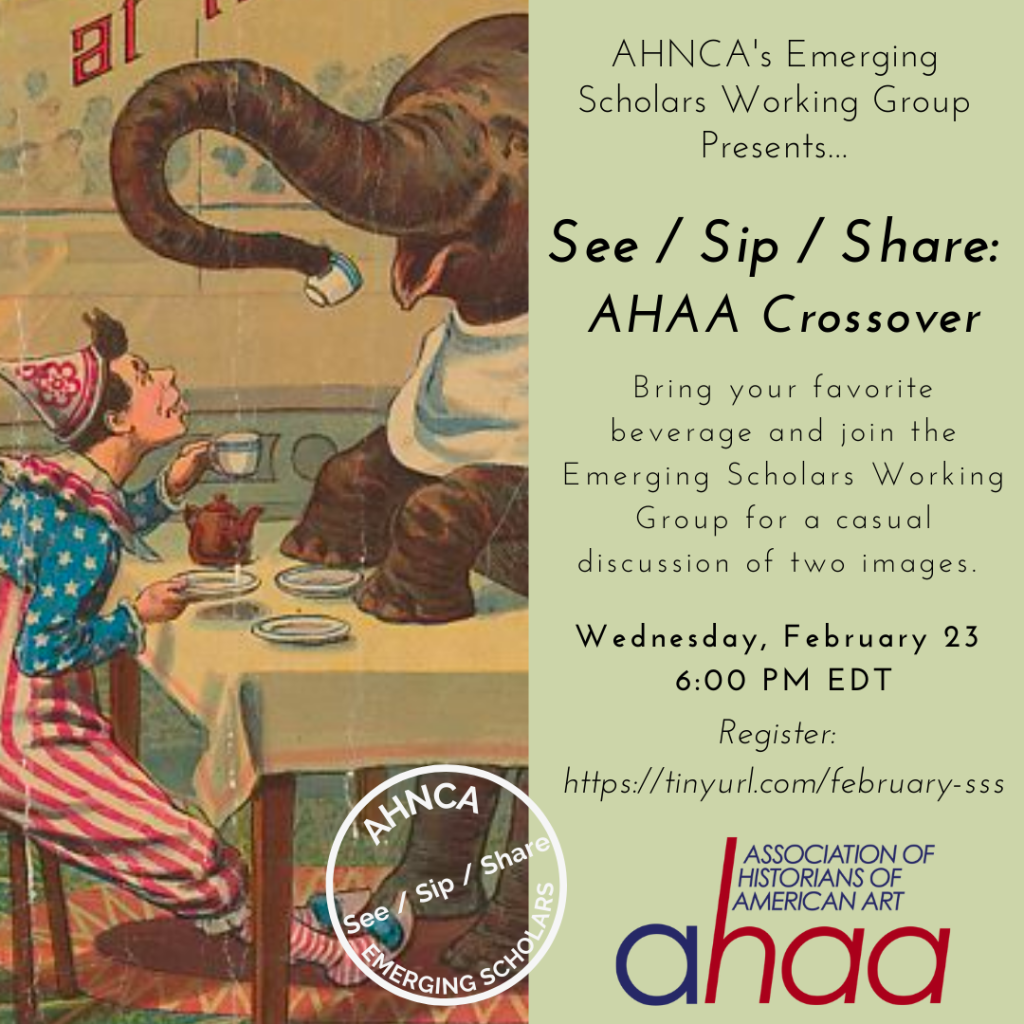
Meet the 2022 CAA-Getty International Program Participants
posted by CAA — Dec 22, 2021
We’re pleased to announce this year’s participants in the CAA-Getty International Program. Now in its eleventh year, this international program supported by the Getty Foundation will all twelve new participants and four alumni to participation in the 2022 Annual Conference. Learn more about the first ten years of the program in our online publication.
At a pre-conference colloquium, the new participants will discuss key issues in the international study of art history together with CAA-Getty alumni and US hosts. The program will delve into topics as postcolonial and Eurocentric legacies, interdisciplinary and transnational methodologies, and the intersection of politics and art history.
Alumni invited back to the 2022 conference will present in the session Can Art History Be Affective? Empathy, Emotion and the Art Historian, chaired by Getty alumni and International Committee members Nora Veszpremi and Cristian Nae, while also providing an intellectual and social link between new participants and our burgeoning group of CAA-Getty International Program alumni.
The goal of the CAA-Getty International Program is to increase international participation in CAA’s activities and the field of visual arts in academia, thereby expanding international networks and the exchange of ideas both during and after the conference. We look forward to welcoming the following participants.
2022 PARTICIPANTS IN THE CAA-GETTY INTERNATIONAL PROGRAM

Tatiana Muñoz Brenes is an art curator and researcher. She has combined the exercise of cultural management with Social Sciences by having degrees in Art History and Psychology, both from the University of Costa Rica. Her training has allowed her to work on the topics of community museums, sustainability, collection research, curating exhibitions and curatorial accompaniment for artistic production. Currently, her work focuses mainly on queer art and the LGBTIQ+ community in Latin America. In addition, she has extensive experience in international projects, lectures, publications and museum training in Scotland, Portugal, Spain, China, Japan, Ecuador, and other countries. Projects can be found at www.arthistorylady.com
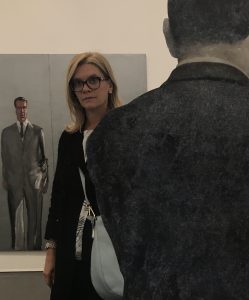
Simona Cupic is Professor at the Department of Art History, University of Belgrade, Serbia. Her fields of research and teaching include art and culture between the World Wars, and the 1950s and 1960s. She is particularly interested in the visual and popular culture between 1920s and 1960s. She is the author of Mona Lisa & Superman. John F. Kennedy and the New Frontier of the Culture (2016), Elain de Kooning. Portraits (with Brandon Brame Fortune, Ann Eden Gibson, 2015), The JFK Culture (edited volume, 2013), and Bourgeois Modernism and Popular Culture. Episodes of the Fashionable, Faddish and Modern (1918-1941) (2011), among others.
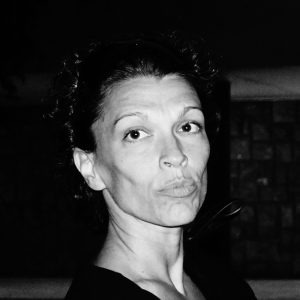
Anica Draganić is an architectural historian, conservator and multimedia artist who currently serves as an Associate Professor at the University of Novi Sad, Serbia. She received her PhD in Architectural History and Heritage Preservation from the University of Belgrade with a dissertation on Austro-Hungarian historical breweries. Her work focuses on nineteenth- and twentieth-century European architecture, with particular emphasis on industrial heritage and identity issues in the intercultural context of Central Europe. Her extensive research on the architectural heritage of the Vojvodina region has been published in journals, conference proceedings, and books, but also presented in numerous exhibitions. Her most recent book, Shadows and Silhouettes of Industrial Past of Vojvodina, shows the complexities of the socio-political context in which the industrial architecture of a specific multicultural region emerged, developed and disappeared. She is currently particularly interested in European architecture from the socialist period, exploring its historical values and contemporary potential.
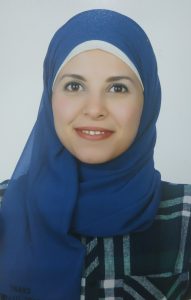
Heba Khairy Metwaly is an Exhibition coordinator at the Grand Egyptian Museum. She Oversees and provide rigorous, accurate and efficient exhibition coordination and follow up all aspects of exhibition development between all partners in the GEM. She is a PhD researcher specialized in the Collection Management and Documentation Practices in different museums. Heba has participated in many international and national field projects and studies focusing on the tangible and intangible material culture preservation and local community engagement and development. Heba has participated in the development of the daily life gallery “P34” at the Egyptian Museum of Cairo, the European Union Funding Project of Transforming the Egyptian Museum. In 2017 she participated in the British Museum International Training Program, where she curated the Object in Focus temporary exhibition. She Also participated in many international conferences focusing on the preservation of museum collection and exhibition design.

Roma Madan Soni is an art historian with a PhD from the University of Wolverhampton, an Assistant professor at Box Hill College Kuwait, an ecofeminist-artist, and a researcher. Her art, teaching, and research are interdisciplinary, positioned at the node of ecofeminism: practice, theory and history, and contemporary visual politics. Her articles are published in Journal of Visual Art Practice, Feminist Media Studies, Ecofeminism and Climate Change, Crafts Research, Art & The Public Sphere, Necsus, International Feminist Journal of Politics, Journal of Gender Studies, Swasti, and a chapter in Cambridge Scholars. She collaborated for conference presentations and conducted workshops at CAA, SVIMS-Pune, JNU, LSR, Raza Foundation, University of Wolverhampton, Kuwait-Nuqat, KISR, TEDx Global Day- Gulf University of Science and Technology, Dar Al Athar-Yarmouk, Kuwait University, American University of Kuwait, Box Hill College Kuwait, American Open University, UN Habitat and Beit Sadu. She has exhibited at Kunsthaus-Steffisburg, TAPRI-Finland, DarAlAthar AlIslamiyah, The Scientific Centre Kuwait, MOMA-Kuwait, Masaha13, Artsy, Mayinart, Artling, Saatchi galleries, and painted the book-cover for Routledge Handbook of Feminist Peace Research (2021). Research grants, commissions and awards from The Scientific Centre Kuwait, Kuwait Foundation of Advanced Sciences, Kuwait Institute of Scientific Research, UN Habitat, and Arab Open University aided her research and creations. She is a member of the Museum Committee and a Reader for the Council of Readers at CAA. I chair the “Transformative Education Think Tank”-Collective Impact Coalition-Konrad Adenauer Stiftung to address Kuwait’s academic challenges. Her work has been accepted at the Venice Art Fair and Florence Biennale 2021.
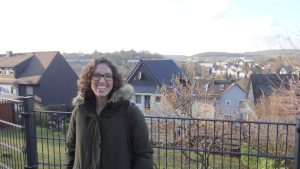
Patricia D. Meneses is an assistant professor of Art History at the University of Campinas (Brazil). She earned her PhD in History of the Visual Arts at the University of Pisa (2009). She is the author of Baccio Pontelli a Roma. L’attività dell’architetto per Giuliano Della Rovere (Felici Editore 2010) and editor of several books, such as Arte Não-Europeia. Conexões historiográficas a partir do Brasil (Esta ção Liberdade 2020), and A imagen como experimento. Debates contemporaneous sobre o olhar (Milfontes 2021). Recently, she was Hans Jonas visiting professor at the University of Siegen (2019), where she taught a course on “exotic” materials in Art History. She is currently part of a Connecting Art Histories project sponsored by the Getty Foundation (“Teaching Non-European at Brazilian Universities”). Her research focuses on the connections between art, science and ecology in the nineteenth-century. She is presently developing a book project about hummingbird’s ecology in Brazilian visual culture.
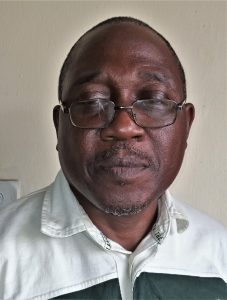
Akinwale Onipede is an art historian, researcher and teacher at the University of Lagos, Nigeria. He trained at the University of Benin, and, the University of Lagos, where he works in the area of the interface of global and local cultures and identities as expressed in visual arts. His main interest is in how developments globally in the philosophies, techniques, products and opportunities in visual arts, have affected its contemporary practice and direction in Nigeria. The universalization of cultures, consequent upon globalization, he argues, is skewed in favor of the West, whose culture is endorsed, whose pocket is deepest and whose machinery is most efficient, in the promotion of the direction of visual arts studies, practice, articulation and documentation. He is of the position that the continent that produced the great pyramids, the Nok, Igbo Ukwu, Ife and Benin masterpieces should play crucial roles in contemporary promotion of the arts.
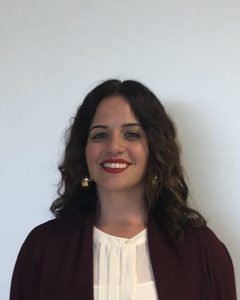
Melissa M. Ramos Borges is an art historian with a predilection for the (re)vision of the discipline. She obtained her doctorate from the Programa de Estudios Artísticos, Literarios y Culturales with a specialty in Art History at the Universidad Autónoma of Madrid, where she presented the first comprehensive study of avant-garde art produced between 1960-1980 in Puerto Rico. She is a professor of Art History and Theory at the University of Puerto Rico, Mayagüez and Río Piedras Campus. In addition, she is an independent researcher and curator who has published and presented her exhibitions and articles in various international platforms. She curated SUZI FERRER, the first retrospective exhibition of the groundbreaking feminist avant-garde artist, presently on view at the Museo de Arte y Diseño de Miramar. She is currently working on publishing a catalogue with contributions from various scholars which will accompany an upcoming traveling SUZI FERRER exhibition.

Shenouda Rizkalla is a trained archaeologist with extensive experience in archaeological fieldwork, database and collections management, and community outreach. His current research focus is the museum’s role in preserving the local community identity, applied to the content and display of the Sharm El-Sheikh museum and build up a sustainable community outreach program by engaging the local population with the collection and relate the results to wider discussions of repatriation and post-colonial heritage management in Egypt. Rizkalla is an Egyptology PhD graduate from Helwan University-Egypt. His research to date has been diverse, working on recording and translating Ptolemaic Period hieroglyphics, creating and executing site management strategies, and addressing the looting of archaeological sites. He is a member of many excavations and site management missions inside Egypt since 2012. He has many Presentations and Invited Talks, Academic Reports and Publications.
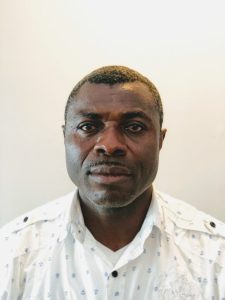
Nsima Stanislaus Udo is a Nigerian and an Africanist scholar. He completed his BA in History and International Relations in Ile-Ife, Nigeria. He then proceeded to South Africa where he completed his Honors and MA degrees (cum laude) at the University the Western Cape in Visual History and Theory. He lives in Cape Town and is a doctoral candidate at the University of the Western Cape. His research interest is in African cultural studies: in thinking around visual representations, histories and meanings of African cultural and festival practices. His doctoral research is currently looking at the history of Calabar Festival and Carnival, Nigeria. He is exploring the multiple-layered cultural, visual, aesthetic, economic and secular representations of this complex and elaborate festival. Nsima Stanislaus Udo presently serves as a teaching and research assistant at the Faculty of Art in the same university.
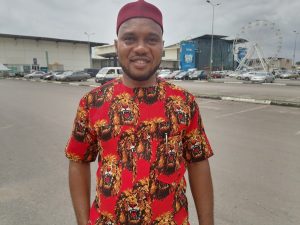
John Kelechi Ugwuanyi is a senior lecturer and the coordinator of postgraduate studies in the Department of Archaeology and Tourism, University of Nigeria, Nsukka. He had his PhD in heritage studies at the University of York and MA and BA in Archaeology and Tourism at the University of Nigeria. His research interest is critical heritage studies, museum, indigenous knowledge systems, tourism, and contemporary archaeology. He is the co-editor of Journal of African Cultural Heritage Studies and sits on the editorial board of the Studies in Contemporary and Historical Archaeology in Theory book series published by the Archaeopress in Oxford as part of the British Archaeological Report series of monograph. Kelechi has published in national and international journals of repute. He is a fellow of the American Council of Learned Societies and a recipient of other scholarship/grant including the Overseas Research Scholarship of the University of York, UK.
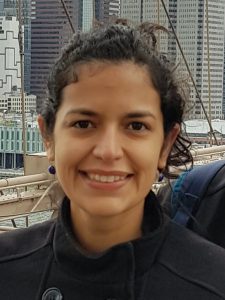
Elizabeth Catoia Varela holds a PhD in History and Criticism of Art from the Federal University of Rio de Janeiro, Brazil (2016). She worked at the Research and Documentation Center of the Modern Art Museum of Rio de Janeiro – MAM Rio (2009-2021). Her dissertation was published as a book in 2017 (Concrete Art Beyond Europe: Brazil, Argentina and the MAM Rio). She published other three books about the history of the museum. Varela was the curator of the exhibition “MAM: its history, its heritage” (2013-2016). She was awarded in 2020 with the AAM-Getty International Program/American Alliance of Museums and is a member of the College Art Association (CAA) and the International Council of Museums (ICOM).
PARTICIPATING ALUMNI

Nadhra Shahbaz Khan is Associate Professor of Art History and the Director of the Gurmani Centre for Languages & Literature at LUMS, Lahore, Pakistan. A specialist in the history of art and architecture of the Punjab from the sixteenth to the early twentieth century, Dr. Khan’s research covers the visual and material culture of the region during the Mughal, Sikh, and colonial periods. Her interest lies in investigating levels of human agency behind artefacts and architectural spaces, both as creators and consumers to understand their political, religious and socio-economic ambitions at different historical intersections. Her publications, conference papers and other research activities spread over more than a decade, especially her book titled Maharaja Ranjit Singh’s Samādhi in Lahore: A Summation of Sikh Architectural and Decorative Practices has successfully brought Sikh art and architecture to the forefront of Pakistan’s heritage discussions and conservation activities.
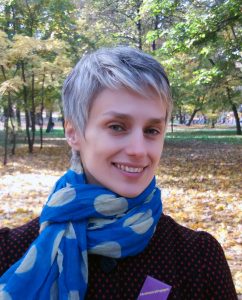
Halyna Kohut is an associate professor in the Faculty of Culture and Arts at the Ivan Franko National University of Lviv, Ukraine, where she teaches history of art, contemporary art, feminist art, and history of theatrical costume. Educated as an artist, she received her Ph.D. from the Lviv National Academy of Arts. Kohut is the CAA-Getty International Program alumna and a recipient of scholarships and grants from the Samuel H. Kress Foundation, Austrian Agency for International Mobility and Cooperation, the Canadian Institute of Ukrainian Studies at the University of Alberta, and the Queen Jadwiga Foundation at the Jagiellonian University in Cracow. Kohut specializes in eighteenth-century East European carpets and kilims. Her most recent research interest focus on woman art in Soviet Ukraine. She is especially interested in how ideology informed the identities of women artists and how they challenged that ideology with their art practices.
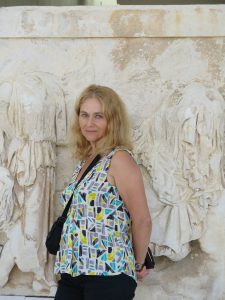
Irena Kossowska graduated from the Warsaw University in 1980. She obtained a Ph.D. degree and Habilitation at the Institute of Art of the Polish Academy of Sciences, in 1990 and 2001 respectively. Currently she is Full Professor of Art History at the Nicolaus Copernicus University in Torun, and at the Polish Institute of World Art Studies in Warsaw. She specializes in the field of nineteenth- and twentieth-century visual arts, art theory, and criticism. She is the recipient of numerous awards and fellowships, including from the Bogliasco Foundation, Center for Advanced Study in the Visual Arts, Smithsonian Institution, Zentralinstitut für Kunstgeschichte, National Humanities Center, Institut national d’histoire de l’art, Henry Moore Institute, and the British Academy. She has written extensively on Polish and European art, including Artistic Reconquest: Art in Interwar Poland and Europe, The Search for Cultural Identity in Eastern and Central Europe 1919-2014, Symbolism and Young Poland; Reinterpreting the Past: Traditionalist Artistic Trends in Central and Eastern Europe of the 1920s and 1930s; and The Beginnings of Polish Original Printmaking 1897-1917.
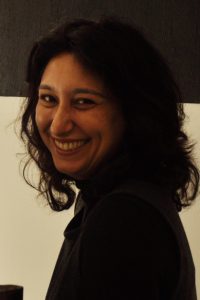
Ana Mannarino is an art historian and a professor of art history in the School of Fine Arts and the Visual Arts Postgraduate Program at the Federal University of Rio de Janeiro, where she received her PhD in history of arts and visual arts. Her research focuses on Brazilian modern and contemporary art, particularly on the relationship between text and image, art and poetry, and the production of artists’ books.
Affiliated Society News: December
posted by CAA — Dec 17, 2021
Many of CAA’s affiliated societies will be presenting sessions at our 110th Annual Conference from February 17-19 and from March 3-5. Check out a list of their sessions to preview!
To attend these sessions and more, make sure to register for the conference and learn more at its registration page.
BIBLIOGRAPHICAL SOCIETY OF AMERICA
Announcements
Bibliography Week 2022 Schedule & Registration
From January 25–28, 2022 the Bibliographical Society of America will celebrate Bibliography Week with a series of events designed to demonstrate bibliographical practice and its relevance to interdisciplinary scholarship in the humanities.
Tuesday, January 25, 4-5pm Eastern – Materialities of Tibetan Buddhist Texts
Within the diverse traditions of Tibetan Buddhism, the power of books—both printed and hand-written—lies not only in their contents, but also in their materiality as objects. The three scholars on this panel will share bibliographical studies of Tibetan texts that highlight how text production, circulation, and replication within architectural spaces has been utilized by Tibetan religious and political leaders to assert and solidify their power.
Wednesday, January 26, 4-5pm Eastern – Meet the Editors of Papers of the Bibliographical Society of America
Please join Papers of the Bibliographical Society of America (PBSA) co-editors Dr. Sarah Werner and Dr. Jesse Erickson for an online Q&A session on January 26. Drs. Werner and Erickson will discuss their vision for the journal and how it can be part of an expanded field of bibliographical scholarship. They will also answer questions that you might have about publishing in PBSA, such as the submission and review process, image permissions, special issues, and open access.
Thursday, January 27, 11-12pm Eastern – In-Person, Center for Book Arts Tour
Guests are invited to a tour of the Center for Books Arts in New York (28 W 27th St., 3rd Floor). For nearly 50 years, CBA has supported artists and uplifted the book arts by presenting exhibitions, lectures, readings, and performances; providing opportunities for artists, writers, curators and scholars through residencies, fellowships, publishing, and collecting; and empowering the creation of new book art by providing courses on book art related technique and history.
Thursday, January 27, 2-3pm Eastern – Bound Images: Maps and Books
This panel offers three case studies to explore what changes theoretically and in practice when we dethrone the ‘sovereign map’ and engage with the production, circulation and reading of maps as bound images, a hybrid graphic and textual part of the stories told by authors and publishers which is experienced by readers through materiality, context, and significance: Giuseppe Rosaccio’s Il mondo e sue parti (Florence, 1595), Johann Jakob Scheuchzer’s Physica Sacra (Augsburg and Ulm, 1731), and Jorge Juan and Antonio Ulloa’s Relación Histórica del viage a la América meridional (Madrid, 1748).
Friday, January 28, 12:00 pm Eastern – 2022 BSA Annual Meeting & New Scholars Program
- Christopher Adams, Malkin New Scholar – ‘Could you make it rather more of a He and She picture?’: The Queer Dust-Jacket and Postwar British Fiction
- Eve Houghton, Pantzer New Scholar – ‘I am always sorry to antagonize collectors’: Henrietta Bartlett and the 1916 Census of Shakespeare Quartos
- Liza Mardoyan, BSA New Scholar – Decorative Bird Initials in the Medieval Armenian Manuscript Culture
- Learn more about the 2022 New Scholars and read their talk abstracts here.
Friday, January 28, 1:30 pm Eastern – Keynote Lecture by Dr. Elizaveta Strakhov: What Makes Bibliography Critical? A Medievalist’s Response
What makes bibliography critical for a Western manuscripts scholar? Medievalists have, after all, enshrined bibliography to the point of developing the specialized subdisciplines of paleography and codicology. How does a Western medievalist breathe new life into bibliography, that bread-and-butter of their scholarly pursuits? This talk offers a case study of two manuscripts of bilingual Anglo-French poet Charles d’Orléans’s work: not the two collections notoriously supervised by him, but two later fifteenth-century, largely neglected manuscripts of his work, one made for European humanist circles and the other circulating with English Tudor royal audiences.
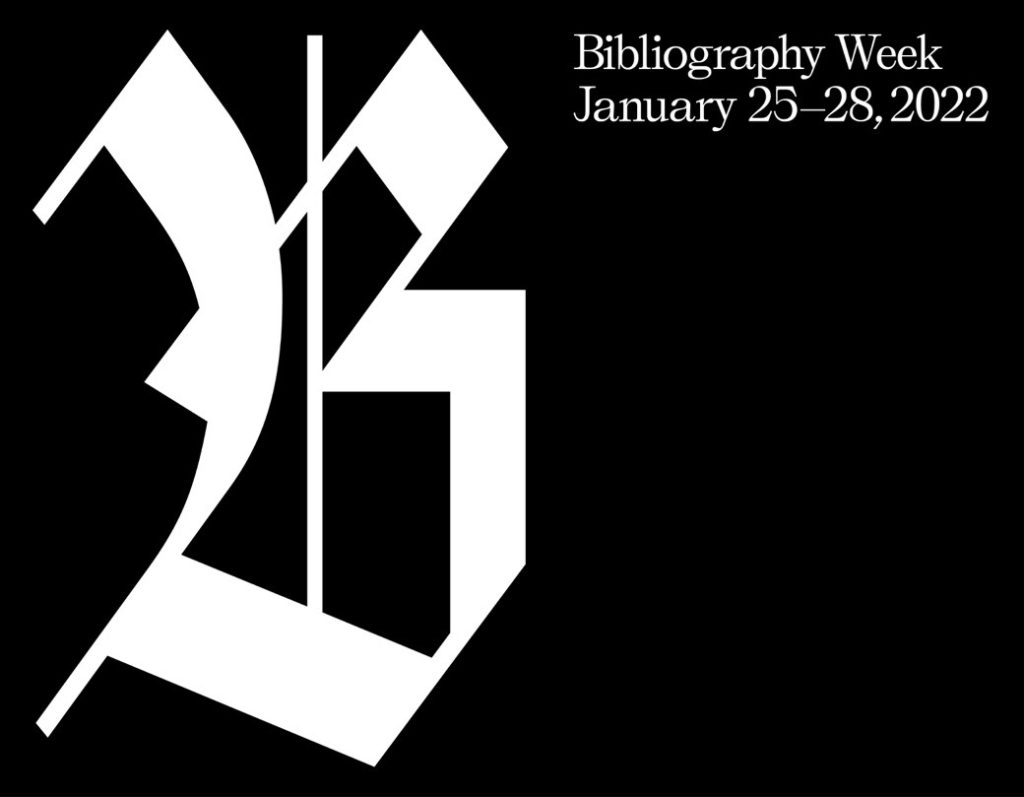
AHNCA (Association of Historians of Nineteenth-Century Art)
Events
Virtual Salon Series: Rethinking the Visual and Material Culture of Enslavement
January 19, 2022 at 7 pm EST
The Association of Historians of Nineteenth-Century Art and the Dahesh Museum of Art present a Virtual Salon, “Rethinking the Visual and Material Culture of Enslavement,” featuring Jennifer Van Horn (University of Delaware), Adrienne L. Childs (The Phillips Collection), and Phillip Troutman (George Washington University). Register at this link.
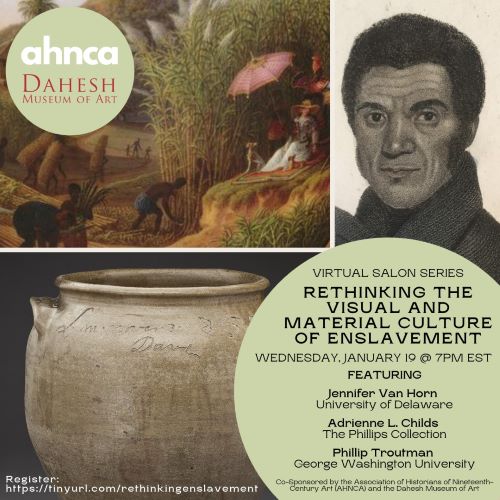
Virtual Salon: Decorative Arts and Materiality
February 9, 2022 at 7 pm EST
Please join us on Wednesday, February 9, at 7 pm EST for our Virtual Salon on the Decorative Arts and Materiality. This series of online events is co-sponsored by the Association of Historians of Nineteenth-Century Art (AHNCA) and the Dahesh Museum of Art. The panel will feature Amy F. Ogata (University of Southern California), Lee Talbot (The Textile Museum, George Washington University), and Christine Garnier (Center for Advanced Study in the Visual Arts/Harvard University). Registration information forthcoming!
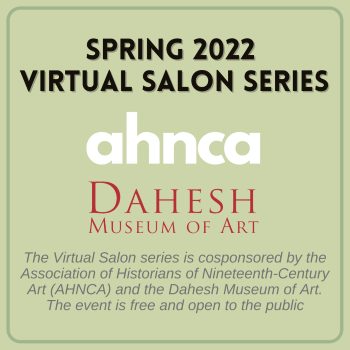
SOCIETY FOR THE HISTORY OF COLLECTING
Event
As part of its continuing series of Zoom lectures focusing on the collections of university museums, the next Society for the History of Collecting–West Coast chapter event will take place on January 28, 2022:
Collectors’ Clothing Caches: Selections from the Texas Fashion Collection
Annette Becker
28 January 2022, 10:00 AM, PST; 6 PM BST
This talk traces the history of the Texas Fashion Collection through three collections and collectors who have shaped its holdings. The Collection was originally conceived by Stanley and Edward Marcus, of the Neiman Marcus luxury department stores, who in 1938 created the Neiman Marcus award to recognize national and international talent in all areas of fashion and design. The talk then focuses on Claudia Heard de Osborne, whose passion for Balenciaga resulted in a gift of hundreds of garments by the designer. The final spotlight will be on brothers Scott and Stuart Gentling, visual artists who collected historic garments as part of their artistic practice.
Annette Becker is a material culture historian and arts educator committed to bridging popular and academic understandings of fashion history. She currently serves as the director and curator of the Texas Fashion Collection, an archive of nearly 20,000 garments and accessories housed at the University of North Texas.
To register for this event please email: events@societyhistorycollecting.org
